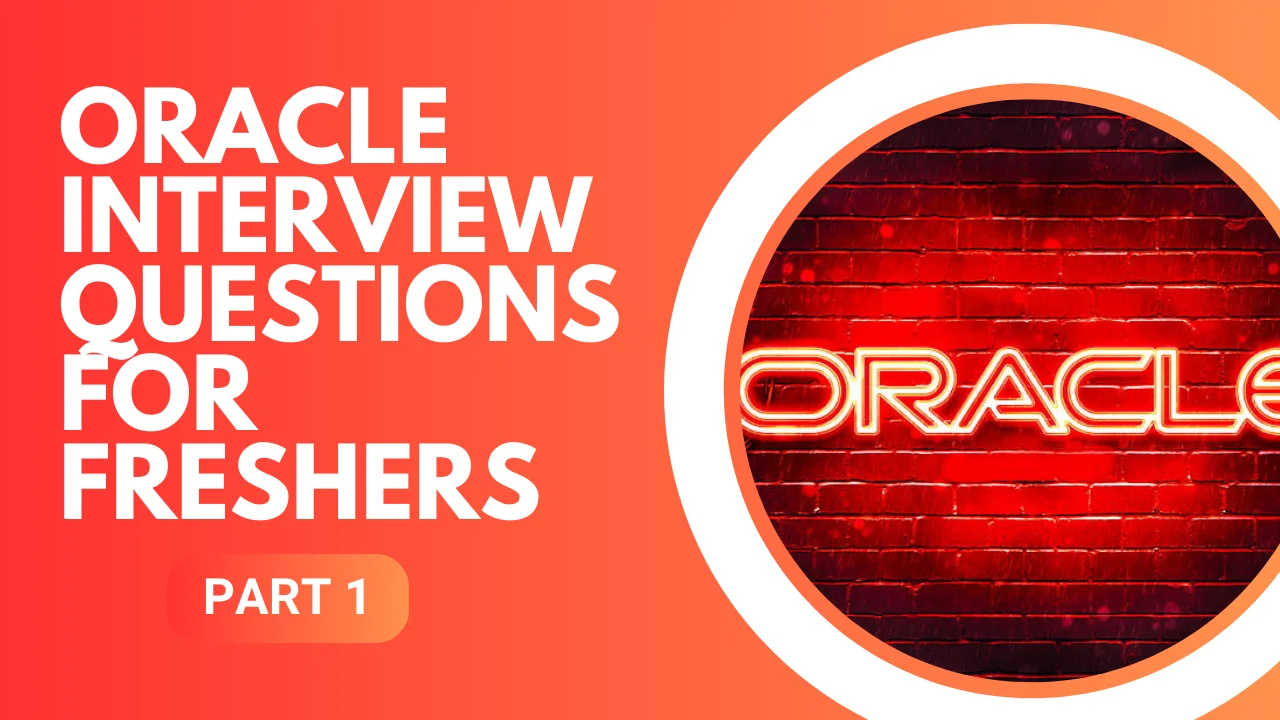Oracle Interview Questions for Freshers Part - 1

1. What are schema objects?
Schema objects in Oracle are logical data storage structures, such as tables, views, indexes, sequences, synonyms, stored procedures, and more, owned by a specific database user (schema). They organize and store data within the database.
2. What are the components of the physical database structure in the Oracle database?
The physical database structure in Oracle consists of data files, control files, redo log files, and tablespaces. Data files store actual data, control files manage the database, redo log files track changes, and tablespaces contain logical storage units.
3. What elements constitute the logical database structure within an Oracle database?
The logical database structure includes schema objects like tables, indexes, views, sequences, stored procedures, triggers, and other database objects that define how data is stored, accessed, and manipulated.
4. Differentiate between Varchar and varchar2.
Varchar and varchar2 are both string data types in Oracle. Varchar can store variable-length character strings up to a specified maximum length, while varchar2 stores variable-length strings up to 4000 bytes by default and doesn’t trim trailing spaces.
5. What is an Oracle table?
An Oracle table is a basic unit of data storage, consisting of rows and columns where data is stored in a structured format. Tables are used to organize and manage data in a relational database.
6. What is a nested table?
A nested table in Oracle is a collection type that allows storing multiple rows within a single column of a table. It differs from a normal table as it is a part of another table’s structure and can be manipulated as a whole.
7. How are comments represented in Oracle?
Comments in Oracle SQL can be represented using two dashes (–), which comment out the rest of the line, or by enclosing text within /* */ to comment multiple lines or parts of a line.
8. How are a database, tablespace, and data file interrelated in the context of Oracle?
A database consists of one or more tablespaces, which, in turn, consist of multiple data files. Tablespaces logically group data files, and data files physically store database data within the tablespaces.
9. What are database objects in Oracle?
Database objects in Oracle refer to structures or entities used to store or manipulate data, including tables, indexes, views, sequences, synonyms, procedures, functions, packages, triggers, and more.
10. Explain the ANALYZE command in Oracle.
The ANALYZE command in Oracle is used to collect statistics about objects in the database, aiding the query optimizer in generating efficient execution plans for SQL statements.
11. Which types of joins are commonly utilized within subqueries?
Commonly used joins within subqueries include INNER JOINs, OUTER JOINs (LEFT OUTER JOIN, RIGHT OUTER JOIN, FULL OUTER JOIN), and CROSS JOINs, which help link tables based on specified conditions.
In conclusion,
The first part of the Oracle Interview Questions for Freshers covers fundamental concepts essential for navigating the Oracle database environment. These inquiries provide a foundational understanding of database structures, memory management, terminology, and key functionalities within Oracle. As beginners embark on their journey in the realm of Oracle, grasping these concepts forms a solid groundwork for diving deeper into the world of database management and development. Mastering these fundamentals lays the groundwork for proficiency and confidence when working with Oracle databases.
Ready to take your Oracle skills to the next level? Explore our top-notch Oracle Training in Chennai. Our expert instructors and hands-on approach ensure that you not only ace interviews but also thrive in real-world scenarios. To kickstart your journey to Oracle excellence, contact us at +91 9655-333-334. Secure your future today with the best Oracle Training in Chennai. Don’t miss out on the chance to propel your career forward!





